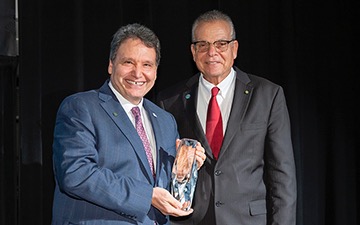The Financial Trade Commission (FTC) and Consumer Financial Protection Bureau (CFPB) warns telephone scammers are now cashing in on the student debt crises by promising loan forgiveness to student loan borrowers.
Student loan debt is a huge crisis in America, and it’s growing. According to the FTC, “More than 42 million Americans owe a total of nearly $1.5 trillion in student loan debt.” This number is expected to exceed $2 trillion by 2022. Student loan forgiveness scams are making the problem even worse.

On Tuesday, March 17, the CFPB and FTC shut down yet another California-based company called Student Loan Pro. The CFPB reported Student Loan Pro swindled $3.5 million from student loan borrowers that promised complete student loan forgiveness. In Jan. of 2020, the CFPB sued 26 companies involved in student loan scams.
Some other examples of student loan scams include:
- charging a fee to consolidate federal student loans
- charging a fee to apply for forbearance or deferment
- charging fees to lower monthly student payments
- charging fees to apply for student loan forgiveness
- charging fee to get your loans out of default
Student loan scams are also costly to taxpayers. In Feb of 2021, the FTC refunded more than $1.7 million to those who lost money to student loan relief-related scams.
According to the Department of Education, each of the services listed above is free and can be done safely via their Financial Aid website or by contacting them directly by phone.
UNF’s financial aid director Ju`Coby Todd Washington offered the following advice in regards to student loan relief scams:
- “Beware of student loan debt relief companies. They typically ask for upfront costs or monthly fees. The US Department of Education will never ask for upfront costs or monthly fees to assist with making repayment of student loans affordable,”
- “The US Department of Education will never ask for the student’s FSA ID and FSA password,”
- “Immediate promised loan forgiveness is not something anyone can promise,” Washington concluded.
The financial giving advice website NerdWallet suggests the following tips to easily spot student loan relief scams:
- “You have to pay upfront or monthly fees to get help.”
- “The company promises immediate loan forgiveness.”
- “A salesperson pressures you to sign up.”
- “You’re asked to share sensitive personal information.”
- “The company advertises on social media or shows up in search engine ads.”
According to the Department of Education, you may qualify for loan forgiveness if you meet the following criteria:
- School closure
- permanent disability
- Death of borrower
You can find more tips on how to spot scams on the Department of Education’s official Financial Aid website found here. Nerd Wallet also keeps a database of companies involved in these scams.
_____
For more information or news tips, or if you see an error in this story or have any compliments or concerns, contact editor@unfspinnaker.com.















